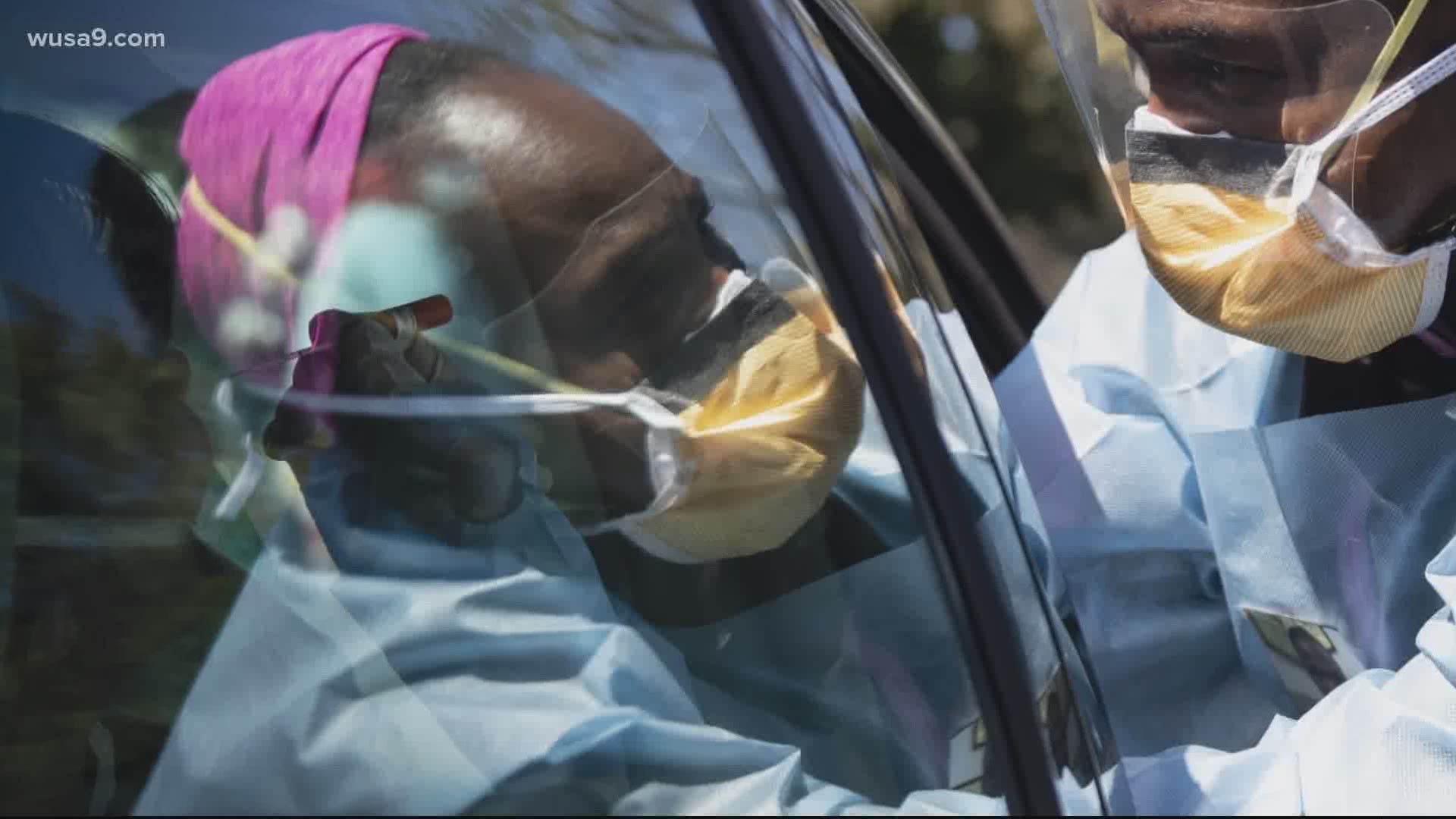WASHINGTON — On Saturday, nurses from across the country marched from Black Lives Matter Plaza to the MLK Memorial located at the National Mall. Marching not just for themselves, but also for their patients.
“Black Nurses Matter is a nonprofit organization that focuses on dismantling white supremacy in nursing,” Dr. Alysha Hart from Chicago said. “Our mission is to fight those systems of oppression and dismantle white supremacy in health care.”
Saturday’s mission was spent marching and calling out the health care disparities within the Black community.
“A lot of Black nurses don't necessarily go into critical care positions as much as the white nurses,” Denise Cabell, a Registered Nurse in the DMV said. “They're being held back and told to go into med search positions for a year or so prior to going into a lot of the critical care positions.”
The medical professionals also wanted to share support for the patients loud and clear, as the world is in the middle of a pandemic and health data shows people of color in the United States are being disproportionately affected.
“There are disparities in COVID deaths, we've seen Black people in the United States contracting COVID or the SARS 2 coronavirus and dying at higher rates,” Hart said.
The CDC said this is because of long-standing health and social inequalities that have put racial and ethnic minatory groups at an increased risk of getting sick and dying from COVID-19.
“Right now it's a maternal health crisis,” Ebony Shene’, a Registered Nurse from Chicago said. “Right now there are the chances of Black babies and mothers that are pregnant actually surviving their pregnancies or their babies actually surviving is lower than developing nations countries and we have to do something to change that.”
RELATED: 'We are masking our faces but not our freedom' | MLK III addresses March on Washington crowd
Shene’ said they want to make sure that people understand patients need to receive equal care and Black nurses and doctors should be recognized as health care providers that communities should have.
“Absolutely important for people to know that we matter, especially when we see that there's no equality in academia when it comes nurses, scholarships. When it comes to health care those disparities that exist. You see that people of color they suffer more than people that are not of color,” Shene’ said.

